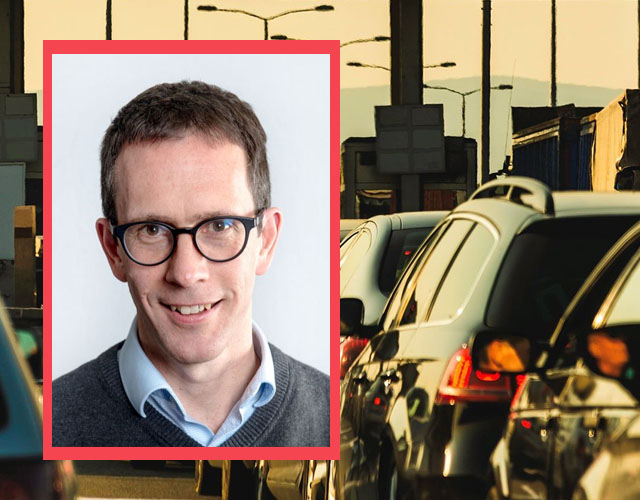Mcr Lit & Phil presents: How should we pay for driving? – Professor Greg Marsden
- Mon 14 Oct 2024
- 6:30 pm
- £15.00

This Manchester Lit & Phil talk explores a fairly simple but hugely contentious question: how should we pay for driving?
As a society we have become accustomed to paying fuel duty and an annual tax on maintaining a vehicle. To varying degrees, we also pay for parking and, in a very small number of places in the world, for driving in the busiest or most congested central areas or on bridges and motorways. The principles behind what we pay, what we pay it for and how it eventually gets used have not been clearly stated or consistently applied.
The economic principles behind the ‘optimal pricing’ of driving have been understood for many decades but remain largely stuck on the bookshelves. Major protests in the UK and, more recently, in France and Germany have shown that rising fuel prices can be a flash point for wider political unrest. Change, at a local scale as shown in London, Nottingham and Stockholm is possible – but by no means inevitable or easy as referenda in places like Manchester and Edinburgh have shown.
Professor Greg Marsden (Institute for Transport Studies, University of Leeds) will argue that whatever you think of the current arrangements for paying for transport, there is a need for a new way forward because of the change to electric vehicles. The transition – where part of the population is driving electric and part fossil fuel vehicles – will become increasingly unfair.
If we do not take any decisions to change the way we pay for travel, then we can also anticipate greater congestion as electric vehicles are cheaper to run than their fossil fuel counterparts. We will both drift further away from the economic principles of the allocation of scarce resources (road space) and from a major source of tax revenue which, in part, funds the transport investments of the day.
Some of the main questions facing us are: What principles should guide any transition from paying at the pump to paying at the plug? What is the relationship between what we pay for driving and what gets spent on transport? How should this debate be resolved? Who gets a say in this? And what is the role of elected representatives at local levels?
Using examples from around the world, Greg will discuss options and opportunities and advance the debate. Doing nothing is an option…But not a good one.
Greg Marsden is Professor of Transport Governance at the Institute for Transport Studies, University of Leeds. He has researched issues surrounding the design and implementation of new policies for over 20 years, covering a range of issues. Greg is an expert in climate and energy policy in the transport sector and has developed new place-based approaches to decarbonising transport. He regularly advises local, regional and national government.


